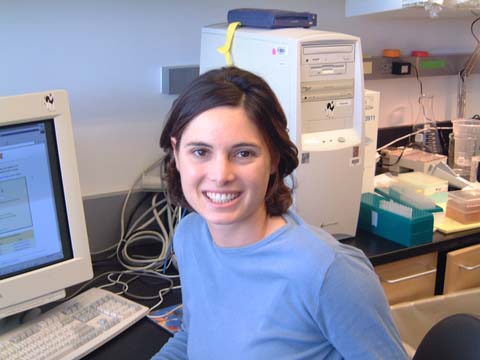|
 |
||
ChanaPalmer @ stanford.edu
www.canaryfoundation.org/founder-team.html
| Description | : | Development Of The Human Intestinal Microbiota.
Nature 448, 542-544 (2 August 2007) | doi:10.1038/448542a; "The human intestine is home to trillions of bacteria. Investigation of the colonization of the infant gut by these microorganisms is a prelude to understanding how they may act in both health and disease. At birth, babies emerge from a sterile environment into one that is laden with microbes. The infant's intestine then rapidly becomes home to one of the densest populations of bacteria on Earth... Interest in this ecosystem stems in part from the discovery of numerous benefits that arise from our intestinal microbiota: these bacteria help in extracting nutrients from food, and are instrumental in the development of the gut (2,3)and the immune system (4) after birth. However, gut microbes have also been linked to several disease states, including inflammatory bowel diseases and colon cancer, and less directly to maladies such as asthma, rheumatoid arthritis, atopic dermatitis and even autism (5,6). An accurate and comprehensive analysis of the microbes present in the developing microbiota of the infant is an essential first step towards understanding which of them may affect the health of the host" http://biology.plosjournals.org/perlserv/?request=get-document&doi=10.1371/journal.pbio.0050177&ct=1 GOTO PEwald |
||||
|
|||||
|
| Powered by Gallery v1.4.4 | RSS |